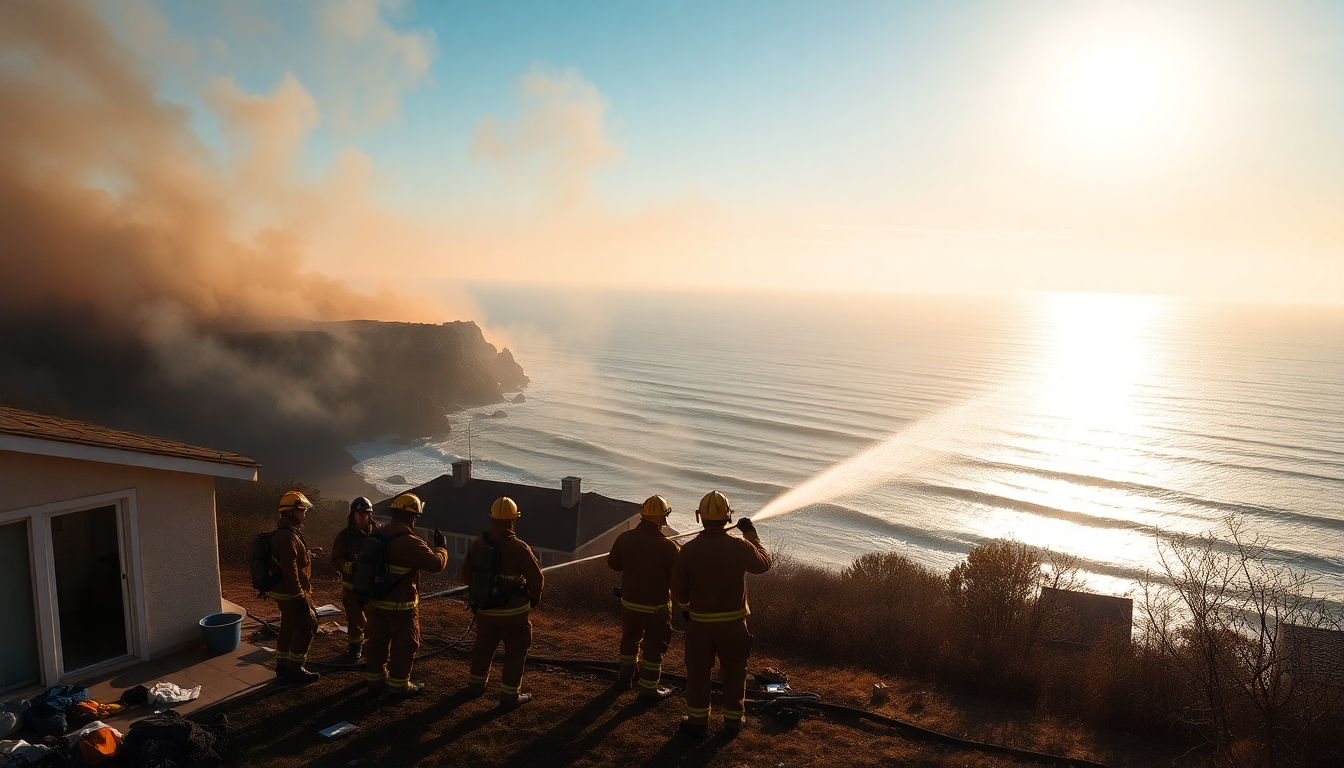Table of Contents
Recently, the stunning coastal region just south of Athens has been hit hard by a devastating wildfire. This crisis has led to emergency evacuations and sparked serious concerns about the rising frequency of such disasters, largely attributed to climate change. As Greece battles extreme heat and dry conditions, it seems like the perfect storm for wildfires is brewing. The rapid response from firefighting teams showcases the ongoing struggle to protect both residents and the environment in this dire situation.
What’s Happening with the Wildfire
The wildfire broke out in Palaia Fokaia, roughly 40 kilometers south of Athens, and has spread rapidly, consuming both lush forests and vacation homes. By Thursday, over 100 firefighters, along with around 24 aircraft, had been deployed to tackle the flames. The intense heatwave, pushing temperatures to nearly 40 degrees Celsius (104 degrees Fahrenheit), has only made things worse, creating harrowing conditions for those fighting the fire.
Authorities have issued evacuation orders for five areas, leading police to evacuate about 40 individuals. Local officials are stressing the importance of safety, urging residents to leave their homes and find shelter. The coastguard has also jumped into action, with patrol boats ready for possible sea evacuations if needed. These proactive measures really highlight the seriousness of the situation and the dedication of local authorities to protect their communities.
How Climate is Shaping Wildfires
While investigators are still looking into the exact cause of this wildfire, early reports suggest that human activity may have played a part. A specialized arson investigation unit has been sent to take a closer look. This isn’t just an isolated incident; earlier this week, another wildfire on the eastern Aegean island of Chios triggered a state of emergency and required significant firefighting efforts.
Climate scientists are increasingly pointing fingers at human-induced climate change for fueling the frequency and intensity of wildfires. As global temperatures continue to rise, regions like Greece are facing longer spells of extreme heat and dry conditions, making them even more vulnerable to such disasters. These recent events remind us of the urgent challenges posed by climate change, prompting demands for improved emergency response strategies and preventive measures.
Preparing for the Future
Given the ongoing threat of wildfires, Greece has made significant investments to boost its firefighting capabilities. This year, the country has ramped up its workforce to a record 18,000 firefighters, underlining the critical need for preparedness in the face of natural disasters. However, the substantial financial resources allocated for damage compensation and firefighting equipment reflect the ongoing costs tied to these extreme weather events.
As Greece navigates unpredictable weather patterns, it’s crucial for authorities to craft comprehensive strategies that not only handle immediate threats but also reduce future risks. The current wildfire situation serves as an essential lesson on the importance of resilience and adaptation in our changing climate. With forecasts predicting prolonged heatwaves and extreme weather, taking proactive steps will be key to protecting both communities and the environment.


